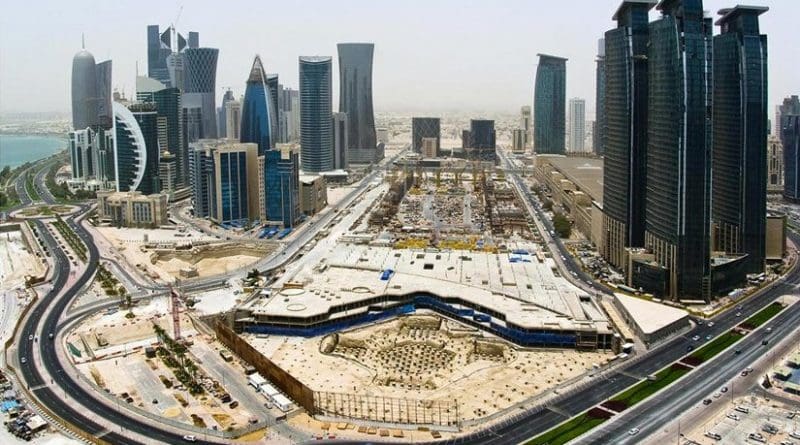Qatar Without Its Three Weapons – OpEd
By Arab News
By Abdulrahman Al-Rashed*
Until the current crisis, Qatar’s media, money and effective diplomacy had helped compensate for its small size and population, and its weak army. They had allowed Doha to impose itself and exploit a regional vacuum.
Egypt under former President Hosni Mubarak responded to Qatar’s blatant meddling and incitement with calm diplomacy and limited media coverage. Instead of confronting it directly, Saudi Arabia was busy dousing fires that Doha ignited in Afghanistan, Lebanon, Yemen, and within the Kingdom itself.
I do not mean to undermine Qatar when I speak of its small size and population. Singapore is a great country that is 12 times smaller than Qatar. Lebanon is also smaller. What I am criticizing is Doha’s belief that it is a major force that can change the region and impose its policies without considering its size or respecting other countries. It supports and funds contradictory ideologies, from democracy to Islamist extremism.
This schizophrenia — with liberal domestic policies but extremist foreign policies — has cost Qatar its credibility in the world. It supports and finances extremists in Iraq’s Al-Anbar province, yet hosts Al-Udeid military base that is the launch pad for US jets shelling Falluja and Ramadi daily. Along with Iran, Qatar fuels Palestinian division by supporting Hamas against the Palestinian Authority. It hosted Hamas leaders and an Israeli office in Doha.
For years it sought to back Saudi Arabia’s enemies in Yemen, Houthi extremists and some northern tribal leaders, who fought the Kingdom at the end of the last decade. Qatar funded Saudi opposition figures inside and outside the country, while speaking of brotherly ties and other empty talk. The silence and patience of regional states allowed Doha to go too far, until four of them finally decided to confront the source of the chaos instead of its pawns.
Via media, money and diplomacy, Qatar is getting a taste of its own medicine. It has suddenly found itself a figure of scorn and ridicule. It is isolated and fearful for its security and existence. As time passes and problems increase, Qatar will discover that it is a small country that is worthless and cannot live in peace without its Gulf and Arab brothers.
It has discovered that Al-Udeid base will not protect it. Its rivals will not be intimidated by its threats to turn to Iran, its invitation to the Turks, its Muslim Brotherhood media, its investment of $170 billion in the West and its contacts in Saudi Arabia, Bahrain and Kuwait. None of this will grant Doha peace of mind. It needs to understand a hard truth: It created regional chaos not because it was strong, but because its neighbors have been patient.
Saudi Arabia, the UAE, Bahrain and Egypt combined have a stronger media, more money, and faster and more vital diplomacy than Qatar. The extent of its crisis and failure can be seen in Doha turning to exiled Foreign Minister Sheikh Hamad bin Jassem, who resides in Washington and had to relay a message via CNN to US President Donald Trump.
• Abdulrahman Al-Rashed is a veteran columnist. He is the former general manager of Al Arabiya News Channel, and former editor-in-chief of Asharq Al-Awsat, where this article was originally published.

